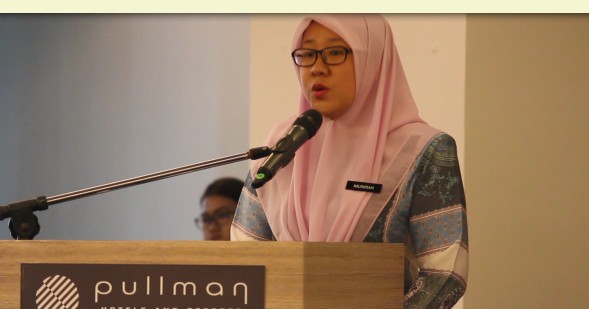
Ministers, communities and international experts agree on way forward in renewable energy

(KUCHING/MALAYSIA, 15-16 March) After two days of discussions and panels between ministers, government officials, community members, civil society organizations, and industry experts, the resulting message of the Clean Energy Collaboration is clear: Malaysia has an incredible opportunity to lead the renewable energy transformation in the region, and communities around Malaysia are already leading the way.
The event saw Ministers and Deputy Ministers speaking bluntly about Sarawakâs obligations to defend its land against destructive industries such as mega-dams, as well as the Federal governmentâs role in ensuring Sarawak invests in local clean energy systems to eliminate energy poverty. All stakeholders agreed that now is the time for Sarawak and Malaysia to ramp up its investment in small scale renewables and to collaborate with indigenous communities in the process.
Deputy Minister of Energy, Science, Technology, Environment and Climate Change YB Isnaraissah Munirah Majili opened the event by committing to this approach: âWe are interested in working with communities and listening to all stakeholders, to create the most effective projects and have reliable energy from the Petronas Towers to the Kampungs. Large dams can only serve as very last resort after having explored all other options for energy generation.â
The Deputy Minister also reaffirmed Minister YB Yeo Bee Yinâs international commitment to reducing Malaysiaâs emissions by 35% by 2030, as well as Malaysiaâs renewable energy target of 20% by 2030. Local and international energy experts were quick to point out that neither of these targets will be met if large scale destructive energy projects continue to be pursued by the Sarawak government.
Professor Daniel Kammen from the University of California, Berkeley spoke frankly about the need for Sarawak to end mega-hydro projects: âWith the world turning to green energy, Sarawak can choose clean energy and community health, or it can stay with environmentally destructive mega-dams that cost more, employ less and turn away green energy investors from Malaysia.â
The transition to renewables was framed not only as a moral and social imperative, but as an economic opportunity. Former Australian Senator Christine Milneâs keynote address asserted: âThe off the shelf technology now exists at a price that makes it financially attractive to decouple the generation of energy from fossil fuels and mega-dams. You can now bring electricity to people wherever they live at an affordable price and without damage to the environment.â
Deputy Minister of Energy, Science, Technology, Environment and Climate Change YB Isnaraissah Munirah Majili stated that Malaysia can be a regional and international renewable energy leader: âWe can not only set new standards for renewable energy in the region but build an industry that will be able to support other countries down the road. This leadership is not only the right thing to do, but will create many new opportunities for business development, entrepreneurship, research and technological leaps. We are excited to be part of the clean energy revolution that is taking place around the world.â
Crucially, indigenous communities who have been directly impacted by large scale energy projects were present at the meeting. More than 50 delegates from Belaga and Baram shared their experience implementing successful renewable energy projects, spearheading micro-hydro systems in remote areas in partnership with civil society organizations. These communities have built and maintained their own systems despite facing displacement from mega-hydro projects. They are showing that community engagement is cleaner and more effective than mega energy projects that bypass remote and rural communities, destroy rainforests and displace local communities.
The Clean Energy Collaboration (CEC) was organised by a group of Civil Society Organisations: SAVE Rivers from Sarawak, Jaringan Orang Asal Semalaysia (JOAS or Network of Indigenous Peoples of Malaysia) and PACOS, a CSO based in Sabah. It is supported by the Bruno Manser Fund, The Borneo Project, the Renewable and Appropriate Energy Laboratory, University of California, Berkeley, the United Nations Development Project (UNDP) and the Sarawak Convention Bureau.
